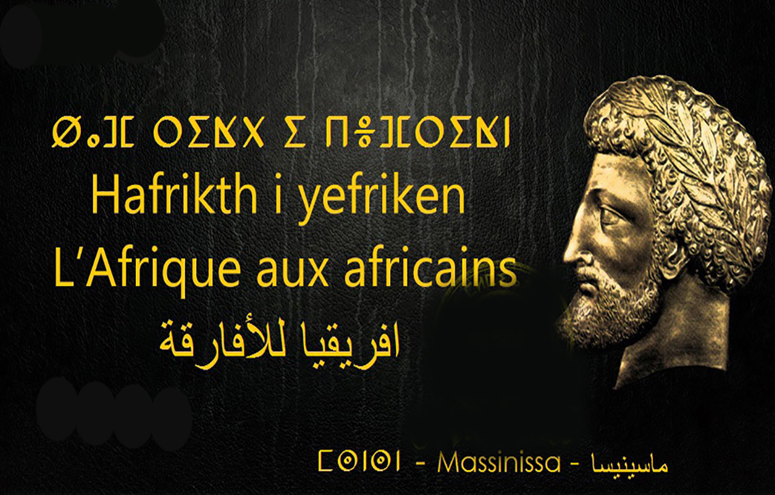The Egyptian Pharaoh Ptolemy VIII, of Greek origin, on a diplomatic visit to Numidia and Masinissa

The visit of the Egyptian Pharaoh is considered one of the most important diplomatic events in ancient and modern history, despite the fact that this event is not talked about and many people and historians do not know about it. Ptolemy VIII, or Ephregit II, was born in 182 BC and ruled Egypt from 170 to 116 BC and is well known. Many historians, such as Polyb, and in many hieroglyphic inscriptions, wrote the book Hypomnemata, that is, the memoirs, in which he talked about Masinissa and the dinner banquet and what he presented to him. In the book of Athenaeus, or Athenaeus, who wrote the book Deipnosophists, which is a huge and great work, which is translated as the banquet of the philosophers. He quoted from Ptolemy's eighth book about Masinissa, and devoted an entire section to him, mentioning two important things according to him, as Ptolemy talks about the way in which he presented Masinissa at the table. In the second quote he explains:
The astonishment shown by the Numidian king at the taste of the Syracusans towards monkeys. These two stories have no connection in the official Hypomnémata, that is, the late royal records, but rather what Athenaeus indicated are in fact personal memories of Ptolemy VIII.
The meeting between Ptolemy VIII and Masinissa is likely to have taken place between 163 and 148, at the beginning of Ptolemy’s rule of Cyrenaica. The meeting place was likely to be in Cirta, the capital of Numidia, the seat of the king of Masinissa. Athenaeus cites again, according to the memoirs of Ptolemy VIII, with astonishment at what the king showed. When Numidian confronted the Syracusans’ penchant for monkeys instead of children, he stated:
“To these men [the Syracusans] and to those like them, Masinissa, the king of the Maurussians,” the response mentioned by Ptolemy VIII in his memoirs, “they wanted to buy a large number of monkeys,” and Masinissa said to them: “In your country, gentlemen, do not women have children?”

Because Masinissa loved children and took care of his children, he had many of them, as well as his grandchildren, in his house. He raised them all himself until they reached three years of age, then they were returned to their parents and others took their place.
There is no doubt that Ptolemy VIII would not have dealt with this story had he not seen Masinissa surrounded by many of his young grandchildren. Unless there had been another second meeting between the two kings, Ptolemy VIII might have noticed this story during the same period of his visit to Masinissa.
The purpose of this meeting and encounter is undoubtedly not a simple courtesy visit, but rather the matter must be viewed as negotiations:
The first is a meeting on the sidelines of the dispute between Carthage and the Numidian king over Emporia, possibly to obtain Ptolemy's neutrality. Perhaps the issue of Emporia was not completely and finally resolved than we think, although the initial ruling was in favor of Masinissa. Rome did not trust King Masinissa and was perhaps unwilling to be drawn into a war. New agreement with Carthage, although Masinissa was an ally of Rome.
The second purpose of the meeting may have been Ptolemy VIII's eagerness to obtain support from Masinissa to regain the throne of Egypt, or a simple exchange of views to maintain a minimum of freedom within the strict and heavy guardianship of Rome.
In general, the conclusions that can be drawn from all of these are numerous

If we stick to the dishes, Masinissa did not adopt the Greek way of life, but rather the Mediterranean way of life at that time, that is, the Roman way of life, which in itself was strongly Hellenized and widespread throughout the entire Mediterranean (according to what is mentioned in the text), and there is no indication of the spread of this fashion in Numidia. It does not bypass the king and his relatives.
What can be concluded from all this:
Masinissa had diplomatic relations with several kings, including pharaohs, on several military and political issues. He was a king of great importance in the ancient world.
Masinissa had many 43 children and many grandchildren.
Masinissa was free to make his own decisions, not under Roman tutelage, as some say.
Masinissa had a Mediterranean taste when it came to dishes, and this is a natural thing. Numidia is part of the Mediterranean countries and it was a fashion in the epoch.
Source: websites

